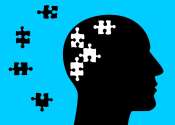Researchers find synchronization of memory cells critical for learning and forming memories
The phrase "Pavlov's dogs" has long evoked images of bells, food and salivating dogs. Even though this tried-and-true model of repetitive patterns mimics a variety of learning processes, what happens on a cellular level in ...
Feb 6, 2020
0
6









